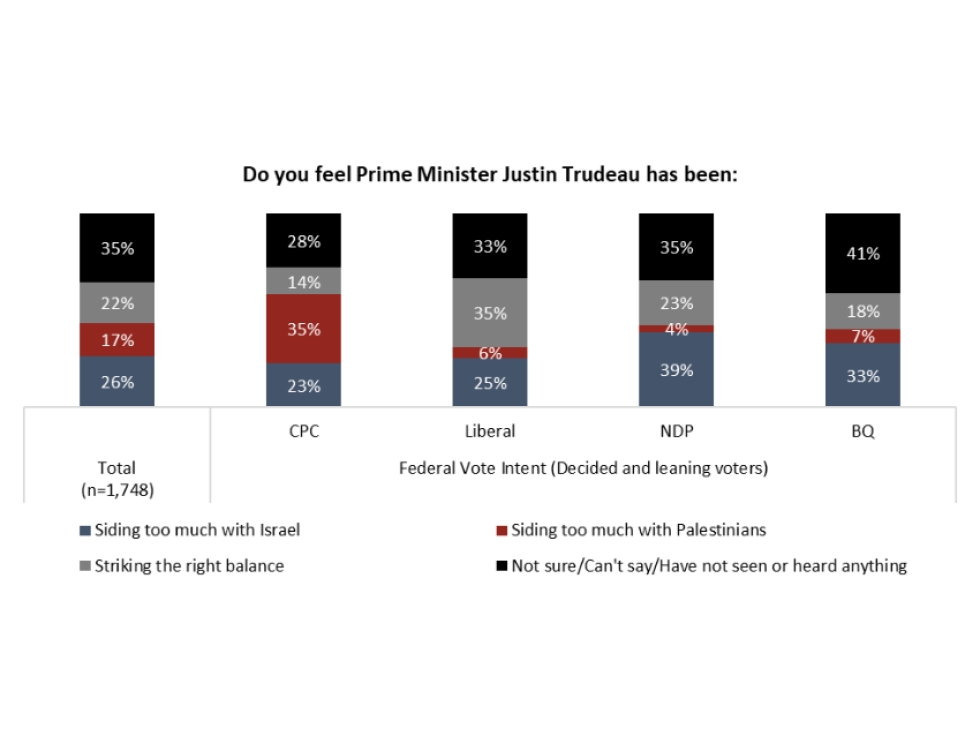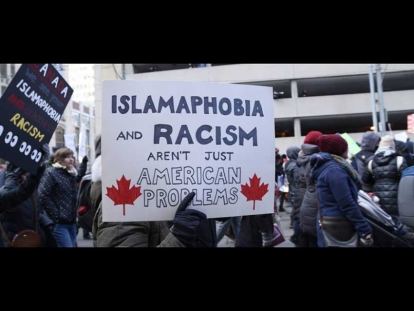 Table from recent Angus Reid Institute report on Canadian attitudes towards the crisis in Gaza
Angus Reid Institute
Table from recent Angus Reid Institute report on Canadian attitudes towards the crisis in Gaza
Angus Reid Institute
Nov
Angus Reid Institute: Two-Thirds of Canadians Call for Ceasefire in Gaza
Written by Angus Reid InstituteNovember 7, 2023 – Much of the world has watched with a mixture of shock, horror, dismay, and grief over the last month, as the most recent wave of conflict between Israel and Gaza has caused the deaths of thousands of innocent civilians. Despite calls for a ceasefire, the violence that began with an attack by Hamas-led terrorists on Israel has continued with a sustained air and ground offensive on Gaza by the Israeli military.
New data from the Angus Reid Institute finds Canadians own responses reflecting the same spectrum of feelings and opinions that have been expressed internationally.
Asked how they view this conflict, 28 per cent of Canadians say their sympathies lie more with Israel. After the country was attacked on Oct. 7, more than 1,400 people were killed, and a reported 200 hostages were taken by Hamas – the political and military organization which governs the Gaza Strip. In response, Israel launched airstrikes and a subsequent ground offensive, with reports of more than 10,000 Palestinians being killed according to the Hamas-controlled Health Ministry in Gaza. One-in-five Canadians (18%) say their sympathies lie more with Palestinians, while a large group – three-in-ten (31%) – say that they feel equally sympathetic for both sides.
Nuance and division are evident across a varying number of issues surrounding this conflict. While 75 per cent say Gaza’s governing organization Hamas is a terrorist group, nearly half (47%) say that supporting the Palestinian cause is not the same as supporting Hamas.
Further, four-in-five (78%) say Israel has the right to exist and to defend itself, but Canadians are also more likely to say that the Israeli response has been too heavy handed (45%) than not (36%). More than two-in-five (43%) say Israeli policy towards Gaza is a form of apartheid, outpacing those who disagree (27%) by a significant margin.
After the Canadian government abstained from voting on a resolution calling for a temporary ceasefire in late October, Canadians have organized across the country to call for just that. Most say a vote in support of pausing hostilities would have been appropriate, with two-thirds supporting either a temporary (35%) or a full (30%) ceasing of hostilities.
More Key Findings:
Canadians are twice as likely to say both the federal government and Justin Trudeau have been too in favour of Israel (26%) rather than too pro-Palestinian (15% and 17% respectively). In each case, more than one-in-five say the response from the government (23%) and Trudeau (22%) has struck the right balance.
Views of the conflict divide along Canadian political lines. Likely Conservative voters are nearly four times as likely (48%) as those who would vote NDP (13%) to say their sympathies are with the Israelis in this conflict. NDP supporters are more than three times as likely (36%) as Conservative ones (11%) to say their sympathies are with the Palestinians. Those who would vote Liberal are most likely (36%) to say their sympathies are divided evenly between the two sides.
One-in-nine Canadians (11%) say that their sympathies have changed since the conflict began, with most of this group (7%) saying that they are more sympathetic to the Palestinian cause now, while the rest (4%) lean more toward the Israelis.
About ARI
The Angus Reid Institute (ARI) was founded in October 2014 by pollster and sociologist, Dr. Angus Reid. ARI is a national, not-for-profit, non-partisan public opinion research foundation established to advance education by commissioning, conducting and disseminating to the public accessible and impartial statistical data, research and policy analysis on economics, political science, philanthropy, public administration, domestic and international affairs and other socio-economic issues of importance to Canada and its world.



